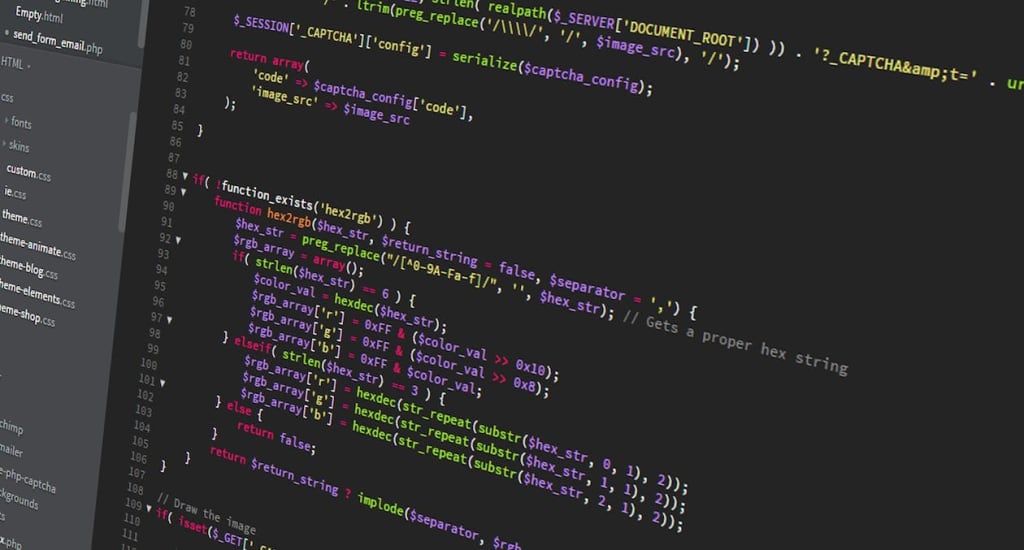
In today's world, software development is one of the most in-demand professions. As the use of technology has grown exponentially over the past few decades, software engineers have become essential to almost every industry. Whether you are a seasoned developer or just starting your career, it is essential to have a strong understanding of software languages. In this article, we will discuss steps to help you master software languages and improve your programming skills.
Choose the Right Language
Choosing the right programming language is the first step to mastering software languages. There are numerous programming languages available, and each has its unique features and benefits. When choosing a language to learn, consider your goals and the types of projects you are interested in. For example, if you want to build web applications, you might choose to learn languages like JavaScript, HTML, and CSS. If you are interested in data analysis and machine learning, you might learn Python.
Practice, Practice, Practice
Learning a programming language is like learning any other skill; practice makes perfect. As you learn a new language, write code regularly to improve your skills. Start with small projects and gradually work your way up to more significant challenges. Joining online communities or programming clubs can also be helpful as they provide opportunities to learn from others, receive feedback on your code, and collaborate on projects.
Read Code
Reading code written by other developers can be an excellent way to learn new techniques and approaches to solving problems. By reading code, you can see how other developers structure their programs, write comments, and make use of libraries. Some online platforms like GitHub, Stack Overflow, and Reddit provide access to open-source code repositories, where you can find examples of projects written in various programming languages.
Use Online Learning Resources
There are many online learning resources available that can help you master software languages. Websites like Codecademy, Udemy, and Coursera offer online courses and tutorials that teach programming languages, frameworks, and libraries. These resources provide a structured learning environment and allow you to learn at your own pace.
Attend Meetups and Conferences
Attending meetups and conferences is an excellent way to learn from other developers and stay up-to-date on the latest trends in the programming industry. These events offer networking opportunities and access to talks and workshops that cover various topics related to software development.
Use Tools and Libraries
Using tools and libraries can help you become more efficient and productive when writing code. For example, using an integrated development environment (IDE) can simplify the coding process by providing autocomplete, debugging tools, and syntax highlighting. Libraries can also save you time by providing pre-written code that you can use in your projects. Some popular libraries include NumPy, Pandas, and Matplotlib for Python.
Collaborate on Projects
Collaborating with other developers on projects can be an excellent way to learn new skills and get feedback on your code. Joining a team or contributing to open-source projects can also help you build your portfolio and gain practical experience working on real-world problems.
Stay Up-to-Date with the Latest Trends
The programming industry is constantly evolving, and it is essential to stay up-to-date with the latest trends. Follow industry leaders on social media, read blogs and online forums, and subscribe to industry newsletters. Keeping up with the latest trends will ensure that you stay relevant and competitive in the job market.
In conclusion, mastering software languages takes time, effort, and dedication. It requires a combination of learning, practice, and collaboration with others. By choosing the right language, practicing regularly, using online resources, attending events, using tools and libraries, collaborating on projects, and staying up-to-date with the latest trends, you can improve your programming skills and become an expert in software languages. Mastering software languages can help you advance your career, open up new opportunities to work on exciting projects, contribute to emerging technologies, and be at the forefront of technological change. The steps outlined above can serve as a starting point to help you master software languages and take your career to the next level.
About the Creator
Meteo
Hi, my name is Met, and I'm interested in writing articles about sports and other informative topics. My objective is to create engaging, informative content that my readers will appreciate.






Comments
There are no comments for this story
Be the first to respond and start the conversation.